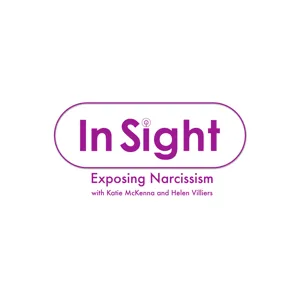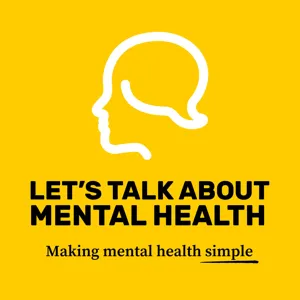Podcast Summary
Overcoming unexpected setbacks during travel: Unexpected events during travel can cause stress, but quick thinking and adaptability can lead to a successful outcome. Stay positive and focus on problem-solving skills to manage the situation.
Even with the best-laid plans, unexpected events can occur that may cause stress and anxiety, but with quick thinking and adaptability, the situation can be managed effectively. Katie shared a story about nearly missing her flight during a family trip, causing her to run through the airport with her children in tow. Despite the close call, they all made it to their destination safely and without major incident. It's important to remember that setbacks can happen, but with a positive attitude and quick problem-solving skills, the outcome can still be a successful one. Additionally, the discussion touched on the excitement of traveling and enjoying new experiences, as well as the importance of family time and making memories together.
Relaxing and Productive Visit: The speaker enjoyed a spacious environment for drone flying, sports, bonding moments, and productive work sessions during a visit, leaving them excited for future collaborations.
The speaker had an enjoyable time during a recent visit, making use of the spacious surroundings to fly a drone and play sports. The experience was even more enjoyable due to the familiar environment and the bonding moments between their children. The visit also resulted in productive work sessions for the speakers' upcoming book project. Overall, the visit was a success and left them excited for future opportunities to collaborate and spend time together. Additionally, they emphasized the importance of signing up for their mailing list to stay updated on their book and other news.
Effective partnership and collaboration in relationships deepen bonds: Reciprocal relationships built on complementing strengths and weaknesses lead to deeper bonding and understanding between individuals.
Effective partnership and collaboration in a relationship can lead to deeper bonding and understanding between individuals. This was evident in the speaker's relationship with her partner Frank, where they enjoyed playful banter and shared interests. Despite Frank's occasional absence due to work, his presence was cherished, and his unique ability to teach and engage with their children was a source of admiration for the speaker. Their relationship was built on reciprocity, where they complemented each other's strengths and weaknesses, making household management and parenting more efficient and enjoyable. Frank's patience and interest in answering the children's questions contrasted the speaker's frustration and literal interpretation of their queries. This balance allowed them to learn from each other and grow as individuals and parents.
A model for healthy relationships: Balanced relationships require effort and communication, but offer emotional honesty and a positive standard.
Having a balanced and equal relationship is not the norm but is possible with effort and communication. Katie's relationship, where the responsibilities are shared, serves as an inspiration for those in unequal relationships. The speaker acknowledges the challenges and hard work that goes into maintaining such a relationship, but also the benefits, such as emotional honesty and setting a positive standard. The speaker's past experiences have made them hesitant to enter new relationships due to fear of losing themselves and being silenced. Watching Katie and her partner's relationship provides a model for healthy and respectful partnerships, and serves as a reminder that even in the face of challenges, relationships require work and attention.
Appreciating friends' relationships and gaining insights: Listening to friends' happy relationships brings valuable insights and fosters personal growth. Open communication and sharing experiences deepen understanding.
Healthy relationships, including those between parents, are essential for personal growth and self-understanding. The speaker shares how she cherishes hearing about her friends' happy relationships, rather than feeling betrayed or disloyal. She emphasizes that these stories provide valuable insights into their friends' characters and challenges negative narratives. The speaker also reflects on her own upbringing and the impact it had on her relationships, recognizing the importance of acknowledging and addressing past issues. The podcast discussion highlights the importance of open communication and the freedom to share experiences, leading to a deeper understanding of oneself and others.
The speaker's upbringing was marked by conflicting messages and emotional turmoil: The speaker's childhood was filled with praise and criticism, love and abuse, leading to a complex understanding of family dynamics and her own worth.
The speaker's upbringing was marked by a great deal of responsibility, emotional turmoil, and conflicting messages. Despite being praised for good manners and behavior, she was also criticized for her curiosity and sarcasm. Her mother's apologies and love were intermingled with physical and emotional abuse, which left the speaker feeling torn and uncertain of her worth. The speaker's mother had a complicated past, which influenced her parenting style and the speaker's understanding of normal family dynamics. The speaker's teenage years were characterized by strict rules and guilt trips, but she eventually found the courage to pursue her own choices and build a loving family with her husband. However, the speaker's relationship with her mother remained fraught with conflict and inconsistency, leaving her questioning the meaning of love and forgiveness.
Setting boundaries with a narcissistic parent: Recognize signs of narcissistic behavior and prioritize self-care, even if it means going no-contact to protect emotional well-being.
Setting boundaries with a narcissistic parent can be challenging, and sometimes it may be necessary to go no-contact to protect one's emotional well-being. The speaker in this story had a long history of her mother's controlling behavior, entitlement, and anger, which made it difficult for her to establish healthy boundaries. Despite her attempts to mend the relationship for the sake of her children, her mother continued to prioritize her own needs and desires, causing further distress and conflict. Ultimately, the speaker realized that she had to let go of the relationship and focus on her own healing. It's essential to recognize the signs of narcissistic behavior and take steps to protect oneself, even if it means going against societal expectations or the advice of therapists who may not fully understand the dynamics of such relationships.
She projected her own traits onto the speaker: People often misjudge others based on their own biases and projections, leading to misunderstandings and cognitive dissonance.
The woman's behavior towards the speaker in the letter was a projection of her own traits and insecurities. She labeled the speaker as "cheeky," "nosy," "too forward," and having "sarcastic humor," but in reality, these were her own characteristics. This was evident in her past actions, such as hiding from the speaker in the morning to instill fear and compliance. The woman's projection of her own traits onto the speaker created a cognitive dissonance, as she claimed to love the speaker but didn't truly like her behavior. This dynamic highlights the importance of self-awareness and understanding how our own biases and projections can shape our perceptions of others.
Childhood Fear of Abandonment: Consequences and Abusive Use: Childhood fear of abandonment can result from abusive use of fear and abandonment by caregivers, leading to lasting emotional and psychological damage. It can manifest as a trauma response and a fear of abandonment in adulthood, questioning one's worth and self-love.
The use of fear and abandonment as a tool for control in childhood can have profound and lasting effects on a child's emotional and psychological development. The fear of abandonment can lead to a trauma response, flooding the body with stress hormones and leaving the child feeling scared, panicked, and unable to think straight. This experience can set the foundation for a fear of abandonment in adulthood, and the exploitation of this fear by a primary caregiver is an abusive and revolting behavior. The complementary moral defense, a common reaction to abuse, may lead the child to question their own worth and wonder if they are the real child being loved. It is essential for parents to recognize the impact of their actions and prioritize creating a safe, secure, and consistent environment for their children.
The listener's childhood fantasy of feeling like an outsider explains her mother's abusive behavior: The listener's belief that she's an outsider allows her to rationalize her mother's abuse, which includes physical violence and emotional abandonment through stonewalling. Setting healthy boundaries is impossible due to her mother's consistent self-serving behavior.
The listener's experience of being treated poorly by her mother, despite being a good student and obedient daughter, can be explained by a common childhood fantasy of feeling like an outsider or an adopted child. This belief allows her to rationalize her mother's abusive behavior, which includes physical violence and emotional abandonment through stonewalling. The mother's refusal to respect boundaries and her constant dominance and control over the listener's life make it impossible for her to establish a healthy relationship. The mother's behavior is a form of emotional torture, and her use of the listener's empathy and grief over her father's death is a manipulative tactic to maintain control. Ultimately, the listener's attempts to set boundaries with her mother are futile, as the mother only serves herself consistently.
8 Strategies for Dealing with Manipulative People: Recognize manipulation, set boundaries, prioritize self-worth, and manage interactions with manipulative individuals to protect your peace and well-being.
Dealing with a manipulative and controlling person can be a challenging experience, leaving one feeling trapped and powerless. The speaker's story illustrates how such individuals use various tactics, including gaslighting, intimidation, and manipulation, to maintain control over their relationships. The listener is encouraged to recognize their worth and set boundaries, even if it means going no-contact for a time. The speaker emphasizes that the listener is not at fault for wanting peace and that they should not accept being treated unfairly or abusively. The speaker also highlights how the manipulative person may throw tantrums and storm out when they cannot control the situation, further emphasizing their need for dominance and control. Overall, the takeaway is to prioritize one's own well-being and not allow oneself to be used as a pawn in someone else's game.
Exposing Narcissists' Vulnerability: Learn to protect oneself from narcissistic manipulation by setting boundaries, saying 'no', and being cautious in escaping abusive relationships.
Narcissists often manipulate and use people like pawns in their games, but their vulnerability lies in their assumption that everyone is less intelligent and incapable of challenging them. By getting them to expect our compliance, we can expose their toxic behavior and protect ourselves. This includes learning to say "no" and setting boundaries, as well as being cautious and discreet when taking steps to escape abusive relationships. Remember, it's not manipulative to protect oneself from abuse. Instead, it's an essential tool for maintaining personal autonomy and safety.
Emotional abuse from a narcissistic mother: Narcissistic mothers can manipulate and emotionally abuse their children, especially sons, through blame, shame, and abandonment, which can have long-term harmful effects.
The speaker in this conversation is discussing a situation where a woman is refusing to visit her dying father in the hospital and instead blames and shames her son for expressing his emotions. The woman has not genuinely apologized and instead continues to blame and abandon her son. The speaker highlights that this behavior is manipulative and a form of emotional abuse. Furthermore, the speaker explains that this behavior is not unique to this situation and is a common trait in narcissistic mothers, who may hold sons in higher regard due to societal expectations and historical patriarchal norms, such as the idea of primogenitor, where the firstborn son inherits everything. In essence, the takeaway is that emotional abuse and manipulation can take many forms and can be deeply harmful, especially when it comes from a loved one, and it's important to recognize and address it.
Pressure to produce male heirs in historical societies: Historical patriarchal societies pressured women to have male heirs, denying children autonomy and instilling entitlement, leading to unhealthy behaviors as adults. Parents should allow children to experience disappointment and learn to manage it.
Historical patriarchal societies placed immense pressure on women to produce male heirs, leading them to believe their worth was determined by their ability to do so. This mindset, passed down through generations, denied children, particularly golden boys, their autonomy and instilled a sense of entitlement and superiority. These children grew up believing they were superior, which could lead to unhealthy behaviors as adults. It's crucial for parents to allow their children to experience disappointment and learn to manage it, as this emotion is a normal part of life. The patriarchal system, which upholds the importance of male heirs, is a complex issue with deep historical roots, and it's essential to understand its impact on individuals and society as a whole.
Narcissistic parents favoring children based on gender: Narcissistic parents' favoritism based on gender can lead to unequal dynamics and emotional damage. Shame is used as a weapon to maintain control, distorting children's views of relationships.
Narcissistic parents often favor their children based on gender, creating an unequal dynamic. This favoritism can manifest in various ways, such as different rules or unequal treatment. The discussion also highlighted how these parents often use shame as a weapon to maintain control and dominance. They may shame their children for seeking pleasure or receiving affection, while allowing their preferred child to enjoy these experiences. This behavior can lead to long-term emotional damage and a distorted view of relationships. It's essential to recognize these patterns and seek help if you've experienced similar situations.
Emotional manipulation and shame: Recognizing and healing shame wounds can help break free from toxic patterns and lead to healthier relationships.
The dynamic of emotional manipulation, such as breadcrumbing, is deeply rooted in the complex emotion of shame. This dynamic only works when there is a present fear of unlovability and shame. People may stay in toxic relationships due to the fear of losing validation and love. The trauma wound of emotional neglect often leads to feelings of shame, making individuals vulnerable to manipulation. It's essential to recognize and address these shame wounds to break free from these harmful patterns. It's also important to acknowledge the existence of privilege, both emotional and societal, and its impact on relationships and our perceptions of worthiness. By recognizing and healing our shame, we can gain a better understanding of ourselves and our relationships, ultimately leading to healthier and more authentic connections.
Understanding the Impact of Preferential Treatment on Children: Growing up privileged doesn't shield us from emotional wounds. Confusion and invalidation can lead to self-doubt and shame. Recognize and shift shame, reframe experiences, and establish healthy communication with children.
Growing up with financial and educational privileges doesn't make us immune to emotional wounds. The child's perspective is crucial in understanding the impact of preferential treatment and emotional invalidation. The confusion and unknowing in childhood can lead the child to question their worth and lovability. The narrative of being grateful and having nothing to complain about can be detrimental, as it ignores the importance of emotional validation and healthy communication. The stigma around discussing money and asking questions can also contribute to shame and confusion. As adults, it's essential to recognize and shift the shame, reframe our experiences, and establish healthy boundaries in communicating with our children.
Breaking Free from Limiting Beliefs: Recognize deeply ingrained narratives, challenge them, and embrace self-worth to heal from people-pleasing behaviors and toxic relationships.
People-pleasing behaviors, such as apologizing unnecessarily or feeling the need to seek validation from others, can stem from deeply ingrained narratives that have been projected onto us. These narratives can create a sense of shame and self-doubt, making us believe that we are a burden or that our experiences and perspectives are not valuable. However, it's essential to recognize that these beliefs are not based on reality and that we have the power to challenge them. By acknowledging our worth and setting healthy boundaries, we can begin the healing process and break free from the limiting beliefs that have held us back. The letter discussed in the conversation serves as a powerful reminder of the importance of self-acceptance and the courage it takes to stand up for ourselves, even when it means letting go of toxic relationships. Ultimately, it's crucial to remember that we are not the problem, and we deserve to live our lives free from the weight of unnecessary apologies and self-doubt.
Vulnerability and authenticity in relationships: Recognizing and challenging limiting narratives allows for personal growth and creating a safe space where everyone's autonomy is valued.
Vulnerability and authenticity are crucial components of healthy relationships. Being able to sit in vulnerability and recognize and challenge limiting narratives allows for personal growth and the freedom to explore new experiences. This not only benefits the individual but also contributes to the creation of a safe and respectful space where everyone's autonomy is valued. In the context of the discussion, both Katie and Jess demonstrated this by sharing their personal wins and setting boundaries, ultimately protecting the space and fostering healthy communication. The Insight Exposing Narcissism Facebook group serves as an example of a safe space where people can express themselves authentically and learn from each other without fear of judgment or silencing.
The Importance of Safe Spaces for Meaningful Conversations: Creating safe spaces for open and honest conversations fosters deeper connections, growth, and learning. Listen actively, understand perspectives, and take care of each other.
Key takeaway from this week's episode is the importance of creating a safe space for open and honest conversations. Helen and the guest emphasized the significance of taking the time to truly listen and understand each other's perspectives. This not only fosters a deeper connection but also promotes growth and learning. I'd like to express my gratitude to our sponsors, listeners, and especially our Patreons for tuning in. As we wrap up this episode, let's remember to take care of ourselves and each other, and continue to strive for meaningful conversations. This podcast has been edited by Sam Atkinson, and you can find a link to his work in the bio. Thank you all for joining us, and we'll see you next time.





